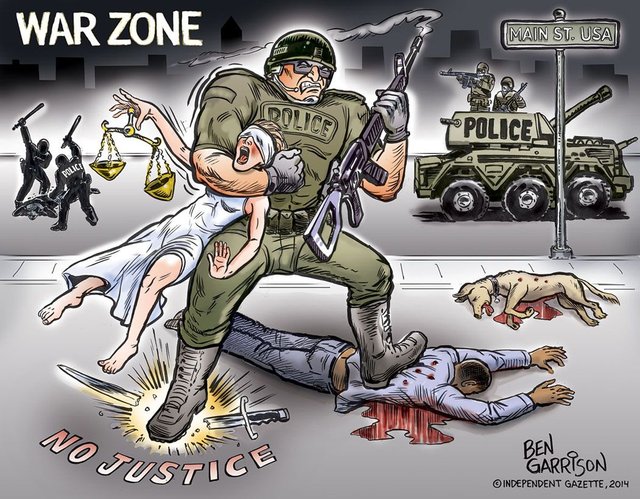The War on Drugs Is A War On The American People
Attorney General Jeff Sessions’ plans to escalate the War on Drugs went up in smoke when it was announced that President Trump promised to sign a bill protecting a state’s ability to set its own cannabis legislation. The announcement was confirmed by White House legislative affairs director Marc Short on Friday, April 13, exactly one week away from April 20, a day celebrated in the cannabis community as “420.”
If President Trump really wanted to make America great again, then he wouldn’t just let the states decide drug policy for themselves. Rather, he ought to abolish the Drug Enforcement Agency and end the War on Drugs altogether.
The War on Drugs has brought disastrous consequences to the country as a whole; the U.S. has the world’s highest incarceration rate, billions of taxpayer dollars are spent every year and let’s not forget the impact this war has had on our civil liberties.
Imagine having your door kicked down in the middle of the night by a gang dressed in black uniforms and ski masks, aiming assault rifles at you and screaming, demanding to know where you’re hiding your aspirin. This might sound ridiculous, but for years, medical marijuana users have had to live in fear of law enforcement persecution - No-knock raids, civil asset forfeiture, warrantless searches, militarized police patrolling terrorizing the population, drug screening checkpoints and roadblocks. The same practices used by communist East Germany that Ronald Reagan decried during the Cold War have now become commonplace in the United States; the difference is the East Germans built their police state to stamp out political dissidents, while the U.S. built its police state to stamp out people who smoke plants.
By ending the War on Drugs, President Trump can also fulfill his promise to deal with corruption in the government. During his presidential campaign President Trump promised to “drain the swamp in Washington D.C.” with ethics reforms specifically targeting government lobbyists.
The pharmaceutical industry, also known as Big Pharma, benefits from the War on Drugs by lobbying the government to criminalize substances that compete with their products. For example, cannabis can be grown easily and is used by many as an alternative to dangerously addictive, legal painkillers like Oxycodone. No one has ever died from a cannabis overdose, while New Hampshire is literally facing a public health crisis from opioid medication. Which substance is legal? The one whose benefactors have the deeper pockets and more lobbyists, of course.
The Prison Industrial Complex is another swamp creature preying on the America people. Private, for-profit prison companies like Corrections Corporation of America (CCA) are hired by the government to house the influx of inmates the Drug War has created. The way contracts are usually set up between the government and company is that the taxpayer not only pays for the company to house inmates, but if the prison’s occupancy rate goes below a certain percentage, taxpayers must also foot the bill for unoccupied cells, thereby creating an incentive for law enforcement to send more and more people to prison. The Prison Industrial Complex has a symbiotic relationship with the government, as companies like CCA spend millions of dollars lobbying to keep some of the worst drug laws, like mandatory minimum sentencing, on the books. Corporations working together with government to enslave the population, a dystopian nightmare that Americans wake up to every day.
Co-founder of the 420 Foundation and former Keene resident Rich Paul organized the NH 420 Rally 2018 in Concord and spoke about the effect the War on Drugs has on college students.
“If you get a drug problem, you can recover from that, but if you catch a charge while you have a drug problem, then you will never recover. You will never be able to get a good job. It’s quite possible you could get kicked out of school. There are things that are done to pot smokers that aren’t done to rapists,” Paul said.
Students with drug charges are explicitly punished Drug War inspired legislation. In 1998, the “Aid Elimination Penalty” was added to the Higher Education Act, which bars students convicted of drug offenses from receiving federal college aid. According to the Drug Policy Alliance, more than 200,000 students have lost eligibility for federal aid because of the penalty. Is the idea of someone voluntarily putting chemicals into their body so abhorrent that they don’t deserve help funding their education while a violent felon does?
The War on Drugs is a war on the American people; the police state it brought and the millions of lives it has ruined through the legal system make it far more dangerous to this country than any psychoactive plant could ever hope to be, Reefer Madness be damned.
